
- हिं - हिंदी
- En - English
- म - मराठी
- తె - తెలుగు
- த - தமிழ்
- বা - বাংলা

Many people have chronic high blood pressure (BP), also known as hypertension, and display no symptoms. This is not uncommon. However, it can lead to widespread damage if it is not caught and treated early on. Hypertension is known as the “silent killer” for this reason.
The good news is that if it is diagnosed early, treatment and management work well.
The only way to catch high blood pressure is through regular checkups or by monitoring your blood pressure at home. This may be recommended if you have a family history of high blood pressure.
Normal blood pressure is below 120/80 mm Hg (but not less than 90/60 mm Hg).

Family history is just one of the risk factors for hypertension.
There are some factors in your control and some out of your control, when it comes to avoiding high blood pressure (BP).
If you are young and healthy, you should exercise, eat healthily and manage your stress levels to avoid high blood pressure. You should also monitor your blood pressure regularly. Visit your physician or invest in a blood pressure machine.
The likelihood of high BP increases with age. However, this does not mean that young people can’t get high BP. According to a recent study, one in five young adults in India has high BP.

The heart pumps blood around the body to provide it with oxygen and essential nutrients and also to flush away toxins. The pressure exerted on the walls of the arteries by this pumping action determines blood pressure.
Systolic pressure indicates the pressure with which blood hits artery walls when the heart pumps and diastolic pressure is a measure of the pressure of the blood against artery walls as the heart rests between pumps. Blood pressure readings are presented as systolic/diastolic, for eg. 120/80 mm Hg.
They are measured in mm Hg as this is the standard measure of pressure in medicine.
Systolic pressure or the first number is generally considered a more important diagnostic measure, as it can be an indicator of a heart problem. Systolic BP over 120 is generally considered elevated.
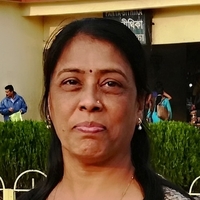
Your doctor will be able to advise you on this, basis the details of your case. Usually, blood pressure (BP) medication is started when your BP reaches 140/90 mm Hg. This is known as hypertension stage 2. Before this stage, you can try to bring your BP down with lifestyle changes like eating healthy and exercising for at least 150 hours a week. Here’s a look at the stages of BP and preventive or management measures for each stage.
Remember to take your blood pressure when you are sitting down and relaxed, and take it again after a small interval to confirm the findings. If you have been monitoring your BP and notice sustained spikes, call your doctor.
Remember also that taking blood pressure medication regularly helps you to avoid long-term damage to the blood vessels and organs, including the heart, kidneys and eyes. If you skip a dose, take the medicine as soon as you remember. Monitor your blood pressure, and let your doctor know about any spikes in BP.
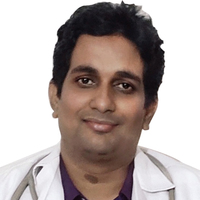
One of the myths about high blood pressure is that it makes you feel uncomfortable—that those suffering from it will display signs of distress. On the contrary, high blood pressure only seldom causes any symptoms and can only be detected if checked.
However, if your systolic blood pressure (first number) is over 180 mm Hg, diastolic pressure is over 120 mm Hg, then some symptoms may appear. These include severe headache, anxiety, chest pain, disorientation, nosebleed and breathlessness. If your blood pressure is extremely high, get medical attention immediately as this is an emergency situation.
Other symptoms include dizziness, blood spots in the eyes and facial flushing (face turns red). However, the evidence of high blood pressure directly causing these symptoms is unclear; for example, dizziness is more likely to be caused as a side effect of medication or due to another health condition like a stroke.

For those who are at risk of developing hypertension or have progressed to a stage of hypertension, regularly monitoring blood pressure (BP) at home is crucial and easy to do. Remember that high BP rarely has symptoms, so monitoring it is the only way to find out if the treatment is working.
Blood pressure monitors are used to take readings. Inflatable cuffs are the most popular model—your doctor can show you how to wrap the cuff securely around the upper arm, turn on the machine, and take readings.
Here are some things you can keep in mind while taking your BP at home:
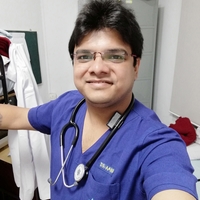
Unfortunately there is no immediate way of bringing down high BP. High BP is a chronic issue that develops gradually over time and is influenced by lifestyle choices. Changing your diet and exercising regularly will keep it in check, and medication will bring it down slowly to agreeable limits. Here are some steps you can take to control your BP:
More research needs to be done on this, but you could replace sugar with stevia: a naturally sweet leaf that is processed and sold in grocery stores. Stevia has been known to reduce blood pressure.
Other foods that are thought to help manage blood pressure include blueberries, strawberries, bananas, kiwi fruit, green leafy vegetables, basil, cinnamon (dalchini), cardamom, flaxseed, garlic and ginger. Try incorporating these in your meals. Doctors recommend five servings of fruits and vegetables daily.
The best thing to do if you have high BP is to control it by taking your medicines, exercising, eating healthy and getting adequate sleep. This can help you avoid many of the complications associated with high BP.

According to the AHA (American Heart Association), high BP will not give you headaches, or show any symptoms.
However, if your blood pressure goes over 180/120 mm Hg, you could experience hypertensive shock and can have a severe headache along with the other symptoms as well. This is a medical emergency and you must get help right away.
A headache like this is caused by built-up pressure in the cranium (skull) and regular painkillers will not help reduce it. If you find, and confirm that your readings exceed 180/120 mm Hg, do not wait for symptoms to lessen by themselves and don’t attempt to self-treat—getting professional help right away is in your best interest.
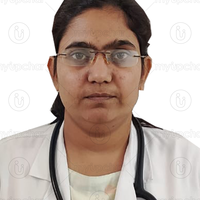
Anxiety does indeed cause a short term spike in blood pressure. The sympathetic nervous system responds to a stressful or novel situation by initiating the fight or flight response, which raises heart rate and blood pressure.
The link is trickier to make when you are looking at anxiety and sustained hypertension. Evidence suggests that chronic anxiety can lead to the development of hypertension. This is the kind of anxiety that will keep you up at night and disrupt your day to day life. Large observational studies have confirmed this, but direct causal links are harder to establish.
In any case, those who can’t manage their anxiety well face increased risk of getting chronic health conditions and mental health problems, so you must take steps to de-stress.
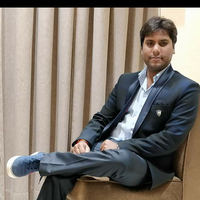
Smoking increases blood pressure by damaging blood vessels and hardening arteries. Long-term smokers are more likely to develop hypertension and associated complications. The benefits start as soon as you quit smoking, and they keep adding up for decades:

Even if you are feeling fine, you should never stop taking prescription drugs recommended by your doctor. This can have harmful effects as the medication is used to manage high blood pressure (BP) and missing a dose can cause a spike in BP. You may be on multiple medications along with a restricted diet and must understand that all these factors come together to improve your quality of life. Changing them yourself can disturb this balance.
If you have been maintaining your BP well, your doctor may lower the dosage of the medication(s) or experiment with different dosages, but these are complex medical choices and cannot be made by you yourself.
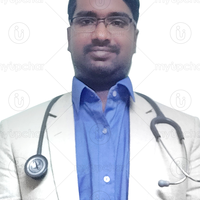
A range of medications is used to manage blood pressure (BP) in combination with lifestyle changes. They are called antihypertensives. Beta-blockers work by reducing the chemical activity of molecules that control the beating of the heart. The heart pumps less blood per pump and this lowers the blood pressure.
Other common antihypertensives include diuretics which work by assisting the kidneys in getting rid of excess water and salt, thereby releasing some pressure from blood vessels.
Other types of drugs work by influencing the blood vessels and dilating them to relieve pressure.

BP medicines can indeed affect sex drive by lowering libido or causing erectile dysfunction in men. Beta-blockers and diuretics are more likely to do this as opposed to ace inhibitors. High blood pressure itself can lower sex drive as well.
If you have been taking antihypertensives for a long time and have only started to encounter sexual dysfunction later, there is probably an issue other than pills causing the problem. Speak with your doctor if you experience sexual dysfunction soon after starting new medication. There may be a possibility to either lower the dosage or try another drug. Your doctor may also suggest vasodilators like Viagra if they are not contraindicated with your current drugs or situation.
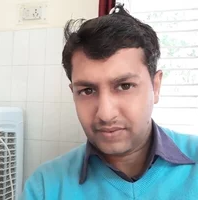
Drinking too much will cause your blood pressure (BP) to spike, and regularly drinking too much can cause long-term BP-related issues. Cut down on your alcohol consumption if you have been diagnosed with high BP: your doctor will be best equipped to counsel you through this process and fix limits for alcohol consumption per day. Quitting cold turkey can cause a severe spike for some days as well.
You can drink socially as long as it is in moderation. Usually, two drinks a day is considered the maximum for men under 65, where one a day for women and men older than 65 is the recommended limit.
The eyes contain many tiny blood vessels that can be damaged by high blood pressure. Hypertensive retinopathy is caused by damage to the retina and one of the leading causes is high BP and diabetes. High BP can also lead to fluid build-up in the retina called choroidopathy which leads to blurred vision. In some cases, optic neuropathy (nerve damage to the optic nerve) can develop as well, which can eventually lead to blindness.
There are no fast remedies to fix this, but maintaining a healthy diet and lifestyle will make a difference over time. Prescription medicine to manage high BP will help as well.
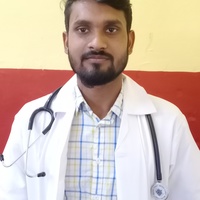
Although smoking and stress are factors that contribute to high blood pressure (BP), it is difficult to say if and when your husband may develop high BP. That said, there are many different factors that increase the risk of primary hypertension. These include:
Less commonly, in about 1 out of 20 cases, hypertension is caused by underlying health conditions, including:
There are some medications that can cause high BP as well, including NSAIDs, steroids, the birth control pill, OTC cough medication and illegal drugs such as cocaine as well.

There is high pressure on the heart and artery walls in hypertension which causes widespread damage if not detected and managed in time. High blood pressure over time will make you vulnerable to other diseases and complications such as:
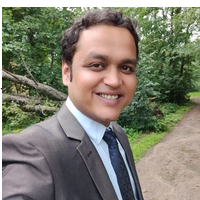
Yes, you should take all the precautions to avoid COVID-19 very seriously. COVID-19 is a coronavirus infection that causes more severe illness in people with existing health problems like high blood pressure (BP), diabetes, heart disease cancer and lung disease.
There's no need to panic, but being mindful of social distancing, hand hygiene and wearing a face mask can go a long way to help you avoid the infection. If you do feel sick, phone your doctor immediately to discuss your symptoms and next steps. You can read more about this here and here.